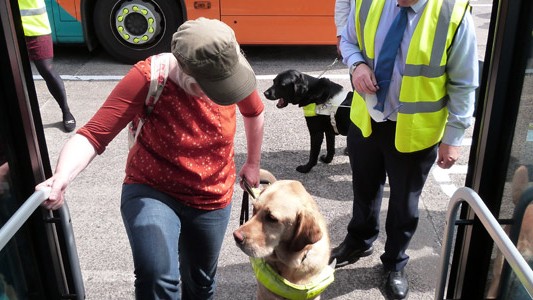New Active Travel guidance ‘dangerous to disabled people’

Four leading Welsh disability charities are calling on Transport Minister Edwina Hart to make urgent revisions to guidance that could endanger disabled pedestrians.
This press release was put out to address the problem:
Guide Dogs Cymru, Disability Wales, RNIB Cymru and Wales Council of the Blind have expressed serious concerns about the new Active Travel Design Guidance being launched at Pedal Power on Tuesday December 9 2014.
The charities’ concerns relate to the guidance on Vehicle Restricted Areas, which proposes that cycling be allowed in busy pedestrianised areas. The guidance also rules out the separation of pedestrians and cyclists by means of a clear delineator.
The charities have warned that these factors will increase the likelihood of collisions and present a threat of injury to disabled pedestrians.
Andrea Gordon, Engagement Manager for Guide Dogs Cymru, said: “We are calling on the minister to revise the section of the Active Travel Design Guidance relating to Vehicle Restricted Areas. We cannot support the current proposal because it puts people at risk.
“We have significant concerns about cycling in busy pedestrianised areas and believe the proposed guidance would endanger disabled and older people and young children.”
Guide Dogs Cymru, Disability Wales and RNIB Cymru worked alongside Access Design Solutions to play a full part in the consultation process relating to the development of the guidance, and submitted an alternative solution to officials when their original proposals were rejected.
Andrea Gordon continued: “We offered an alternative way of providing inclusive access for cyclists and disabled people. The current guidance includes no compromise and we are unable to support it.
“There is a legal requirement for an Equality Impact Assessment to be conducted before guidance can be implemented. Therefore, we believe that a policy which fails to take the safety and freedom of blind and partially sighted people and other disabled people into account could be challenged under the Equality Act.”
